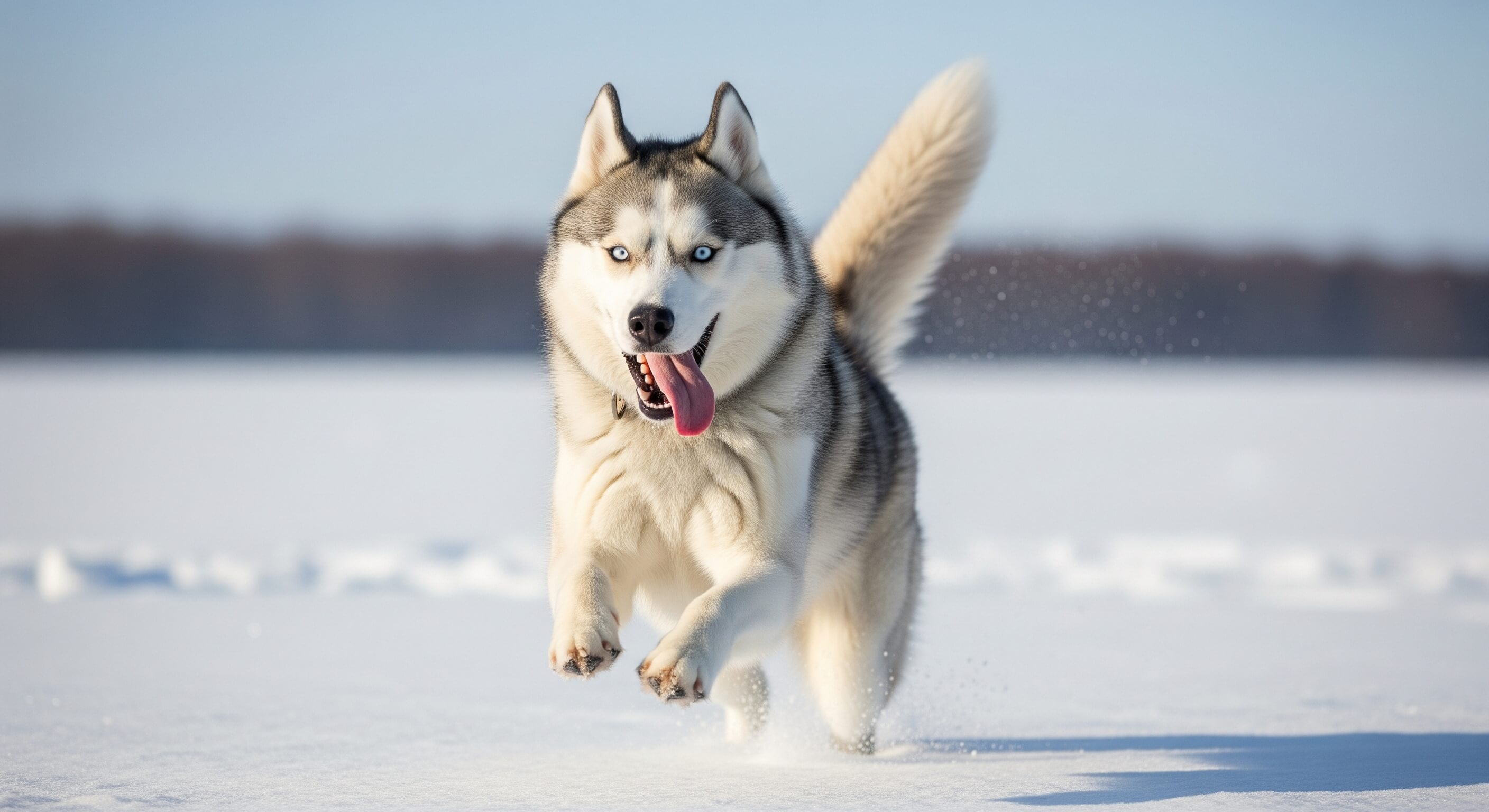If you're captivated by those icy-blue eyes and wolf-like looks, you're not alone. The Siberian Husky is a striking, athletic breed known for its high energy, playful temperament, and undeniable charm. But behind the beauty lies a dog that needs the right home, attention, and structure to thrive.
Personality Traits & Temperament
Siberian Huskies are known for their mischievous, intelligent, and outgoing temperament. They’re pack animals, meaning they thrive in social environments and love being part of a family. Expect a dog that’s independent but also affectionate when bonded with you.
- Temperament: Friendly, energetic, and occasionally stubborn
- Personality traits: Loyal, alert, adventurous, and curious
- Barking tendency: Moderate—more howling than barking!
Training Difficulty & Socialization Needs
Training a Siberian Husky can be an adventure. Due to their independent streak, they’re not recommended for first-time dog owners unless you're committed to consistent, firm, and positive reinforcement training.
- Training difficulty: High—requires patience and creativity
- Socialization needs: Essential from puppyhood; they love people and dogs but can be prey-driven around small animals
“Our Husky, Luna, responded best when training felt like a game. Anything too repetitive? She was out!” — Pet Parent, Jaipur
Exercise Requirements
Siberian Huskies are bred to run—and run some more! They need at least 1.5 to 2 hours of vigorous activity daily to stay physically and mentally balanced.
- Long walks, hikes, or runs
- Backyard play with toys and flirt poles
- Canicross or agility sports
Grooming Needs & Shedding Level
Their double coat is built for Arctic winters, which means shedding is intense—especially during spring and fall.
- Grooming needs: Brushing 3–4 times a week; daily during heavy shedding
- Shedding level: Very high (invest in a good vacuum!)
- Baths: Once every 1–2 months
Health Issues & Lifespan
Huskies are generally healthy, but like all breeds, they’re prone to certain genetic conditions.
- Common health issues: Hip dysplasia, eye disorders (cataracts, PRA), hypothyroidism
- Lifespan: 12–14 years
Diet Requirements
This energetic breed needs a nutrient-rich diet to fuel their high metabolism. Look for quality kibble or a balanced raw/home-cooked plan approved by your vet.
- Diet requirements: High in protein, moderate fat
- Split meals to avoid bloat
- Fresh water always available
Living Environment: Apartment Living & Family Suitability
While Huskies can adapt to apartment living, it’s not ideal unless you meet their high exercise needs. They’re best suited for active families with a yard.
- Apartment living: Possible with commitment to daily exercise
- Family-friendly: Yes, with supervision around smaller kids
- Good with children: Generally excellent—playful and gentle when well-socialized
Summary
The Siberian Husky is a beautiful blend of spirit, stamina, and sociability. They’re not couch potatoes and aren’t meant to be left alone for long hours. But if you lead an active life and want a loyal companion who’ll challenge and charm you, a Husky could be the perfect match.
Recommended Products
- Furminator Deshedding Tool
- KONG Classic Toy (for mental stimulation)
- Harness for pull-friendly walks
- High-protein dog food (check with your vet)
Frequently Asked Questions (FAQs)
1. What is the temperament of a Siberian Husky?
2. Is the Siberian Husky good for apartment living?
3. How difficult is it to train a Siberian Husky?
4. What are the exercise requirements for Huskies?
5. Do Huskies shed a lot?
6. Are Siberian Huskies family-friendly and good with kids?

About SniffnTail
SniffnTail is your go-to destination for everything pets. From helpful advice, tips, and insights to thoughtfully selected products and resources, we’re here to support pet owners at every stage of their journey. Whether you're caring for a playful pup, a wise old cat, or anything in between, SniffnTail offers tools and knowledge to make pet parenting easier and more joyful.
Related Articles
 Dog Breeds • 25-30 minutes
Dog Breeds • 25-30 minutesThe Ultimate Whippet Dog Guide: Health, Care, and Lifelong Wellness from a Veterinarian's Perspective
Comprehensive Whippet dog guide by a board-certified veterinarian, covering health, nutrition, behavior, training, and preventive care for this unique sighthound breed. Get expert insights for your Whippet's well-being.
 Dog Breeds • 7 min read
Dog Breeds • 7 min readAdopt a Hypoallergenic Puppy: The Ultimate Guide for Allergy-Friendly Dog Lovers
Looking to adopt a hypoallergenic puppy? Discover the best non-shedding dog breeds, tips for allergy sufferers, and how to choose the right furry friend for your family.
 Dog Breeds • 12-15 minutes
Dog Breeds • 12-15 minutesWest Highland White Terrier (Westie): Your Complete Care & Breed Guide
Unlock expert Westie dog facts, essential grooming secrets, effective training tips, health insights, and comprehensive puppy care. This ultimate West Highland White Terrier guide ensures every pet parent raises a happy, healthy companion. Get your Westie answers here!

